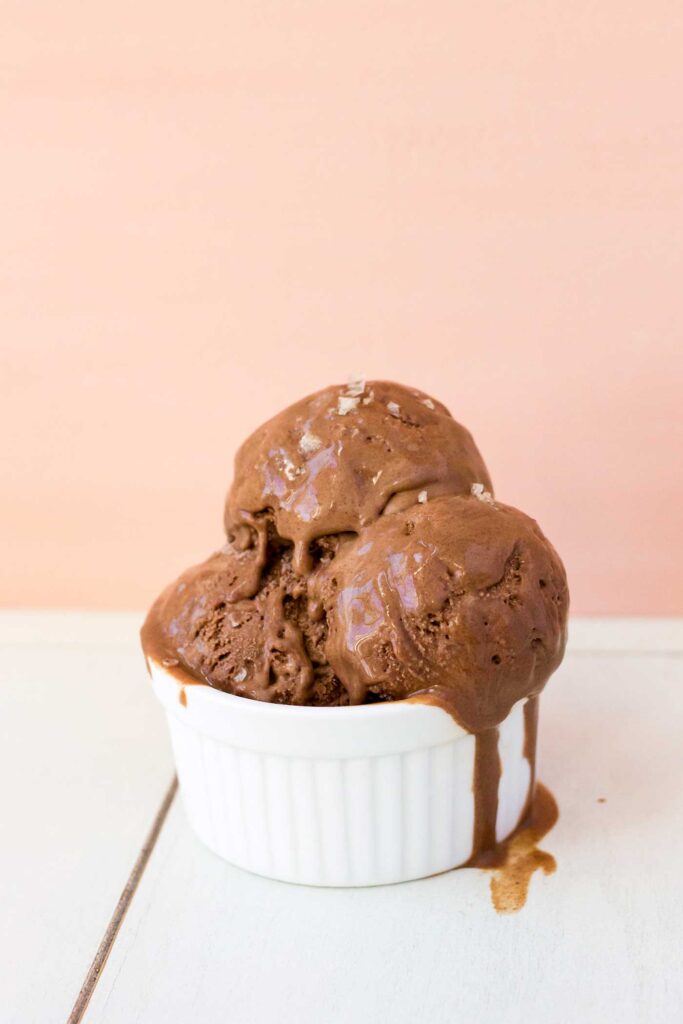The orange zest is a very common flavor that many people enjoy. It imparts a pleasant crunch to food items and is fantastic as a garnish on any dish. It is a natural flavoring agent, which gives an effervescent citrus taste to numerous beverages and food items. The vibrant portion of the fresh oranges peel can be directly added to recipes to provide it with an orange-like flavor.



Don’t let this one slip away — pin it now and thank yourself later!
Don’t let this one slip away — pin it now and thank yourself later!

The orange peel is a grate form extracted from the orange peel. You could be in a situation looking for orange zest alternatives in your cupboards. Don’t worry. We’ve come up with twelve orange zest alternatives that you can effortlessly incorporate into your dishes.
Alternatives and Substitutes For Orange Zest
Apple Cider Vinegar
If you don’t have orange zest in the kitchen but have apple cider vinegar, you can use this substitute. Apple cider vinegar has a fruity flavor that can compensate for the absence of citrus flavors in recipes. However, it is not a substitute for sweet desserts and recipes.
We recommend apple cider vinegar for savory recipes such as soups, burger sauces, and salads. You can also use regular vinegar, but it is much more acidic than apple cider vinegar. Apple cider vinegar has the same tangy taste as orange zest, which is why so many people use it to replace orange zest. You can also use this with baked dishes.
You can substitute half a teaspoon of apple cider vinegar for one tablespoon of orange zest for a better taste and flavor. You can try mixing apple cider vinegar with grape juice to make it a little less tart. You can add a few tablespoons of honey to help balance the flavor. You should use vinegar sparingly or end up with a messy recipe.

Grapefruit Zest
Grapefruit is another member of the citrus family. This food, which has “G” in the first letter of its name, is rich in vitamin C and A. You’ll see the differences in different citrus fruit cultivars by looking at their names and pictures. This means there should be more zest to use. Grapefruit is a popular citrus fruit, and it’s why you can use it as an orange zest substitute. It is just as tart as orange zest and can be used to garnish dishes.
To zest the rind, you need to be skilled as the protective layer of albedo is thicker than that of the outermost. It doesn’t matter if you do not; the grapefruit rind isn’t bitter. You can substitute one teaspoon of orange zest for one spoon of grapefruit zest, with minimal taste differences. Grapefruit is a citrus fruit that many people love and use to make dishes like grapefruit sorbet etc. It is similar to tart as orange zest and can be used to garnish dishes.
Lemon Zest
Another great substitute for orange zest is lemon zest. It’s part of the citrus family. It is a most common ingredient found in most kitchens and holds a refreshing, citrusy taste. You can definitely use it to replace orange zest. Make sure you get the colored part of the lemon peel and not the white pith.
People won’t like the pith because it has a strong, sour taste. The lemon zest will have a slightly different flavor to oranges than expected. Substitute for orange zest in a 1:1 ratio.
You can use lemon zest in many sweet and savory dishes, such as lemon bars, meringue pie, marinades, rubs, or glazed dishes. You can also use lemon extract if you don’t have any lemon juice. This extract is high in acidity, so it might not be ideal for you if this is a problem.

Orange Water
Orange water is enough if you are looking to substitute orange zest flavor. Orange water is made from orange flowers, and distilled water holds a citrusy flavor and aroma. Orange water is lighter and more subtle than orange juice.
Although it isn’t as sweet as orange juice, it does have a slight sweetness that you can use to sweeten any dessert. You will need to use more orange water than orange juice, which only requires half a teaspoon to substitute orange zest. To achieve the perfect citrusy sweet flavor, use two teaspoons of orange water.

Clementine Zest
Can you substitute clementine zest for orange zest? Yes, you can! The best citrus fruits were kept for last. Clementine is a mix of a mandarin and regular orange, and its rich color and sweet taste are all-around attractions. Clementine zest tastes sweeter than orange zest, so it is an excellent choice for those who love the sweetness and deliciousness. Out of all the varieties of oranges, this is loved by most people as it is sweeter, deeper in color, and, most importantly, has more zest than regular oranges.
These are available in your area, so you might consider trying clementine for your next baking session. You can substitute the same ingredients but use the 1:1 ratio, and this substitute is the best and most reliable to maintain the same result in your recipe.
Orange juice
Orange Juice is a substitute for orange zest, which is quite similar to orange extract. You can purchase pure orange juice at the market or squeeze them and make it yourself. The orange juice is derived from it and therefore carries a similar flavor. It is possible to use orange juice instead of the zest of orange in baking, as it can be used in baked food or as glaze or filler.
Be aware that orange juice isn’t that sweet but is slightly sour than orange zest, so you may add sugar to make it sweeter. You can use orange juice in salad dressings, marinades, desserts, baked goods, drinks, and various other savory and sweet dishes.
To replicate the strong flavor of orange zest, make your zest in the quantity you are looking for and then double the amount of orange juice in the ratio of 1:2. You could also add orange juice to salad dressings, sauces, and dips. If you’re using orange juice to substitute zest from oranges, be sure to make use of fresh and pure orange juice.
Avoid using juice that has added flavors or additives. Also, avoid using preservatives or other flavors. Orange juice is best when cooking on the stovetop, where the liquid added can be decreased.
Recipes such as duck a la orange chicken, orange chicken, or beef strips of orange can be used to swap zest for liquid ingredients. The cooking on the stove will help evaporate excess liquid. If the recipe you are making needs 1/4 teaspoon extract from an orange instead, use two tablespoons of juice instead.
You can also reduce the quantity of liquid used in the recipe to reduce the amount of juice from oranges. You can also use citrus juice instead of the liquid components used in the recipe.



Don’t let this one slip away — pin it now and thank yourself later!
Don’t let this one slip away — pin it now and thank yourself later!
Fruit Concentration
Concentration in fruit, also known as fruit concentrate, is the fruit that has had its water removed. This is accomplished through evaporation, which results in the complete loss of nutrients such as vitamin C. What’s left? Sugar and calories are stored to make it more syrup-like, and condensed artificial ingredients are added. The fruit concentration isn’t appealing, at least when you’re concerned about health issues.
It can be useful if you cannot utilize juice from fruit for your recipes. If, for instance, you’re baking bread, then orange juice may appear to be a great idea as it can add an abundance of moisture to the batter, making it messy. In addition, it packs more punch than juice from the fruit. It is a more intense and citrus-like scent that you can’t avoid sniffing. 3/4 teaspoon of concentrate would equal one teaspoon of zest from an orange.
Other Citrus Fruits Zest
It is possible to use other citrus fruit zests to make alternatives to orange zest. For instance, lemon or lime can give you the same tangy taste as oranges in your dishes. You can add lime or lemon zest to your baking dishes, such as cakes, cookies, and muffins.
You can also add it to salad dressings and sauces for an extra flavorful touch. If you’re not able to find oranges, add the same amount of zest to your dish Utilize the zest of other citrus fruits belonging to the family of oranges, such as mandarins, clementines or tangerines.
The substitute fruits also contain essential oils, the same as orange zest. There are other similar varieties of citrus fruits like limes, lemons, or lemons. But, these substitutions may provide a different taste. So, before you use these substitutes, make sure you test the taste before making them in large quantities. It is also possible to do some tests to find an alternative flavor so that you can experience the new taste with your loved ones.
Fruit Vinegar
It is as numerous kinds of vinegar made from the fruit as there are fruit varieties to create the vinegar from. The fruit flavor can offset the acidity of the vinegar and provide the bitterness of fruit associated with citrus zest. The fruit vinegar derived from the citrus can provide a more suitable replacement for orange zest than the raspberry vinegar.
If you’re only carrying an apple cider vinegar such as plum, apple or strawberry, based on the recipe you’re creating, the switch can still be made, but you’ll end up with a distinct flavor. For instance, the orange cranberry sauce could change into strawberry cranberry sauce, and the list goes on. checkout cranberry ginger relish recipe on our website.
Do not swap out citrus zest for vinegar in cooking and not in baking recipes. Vinegar is a component that breaks down starches and proteins. Even though in small quantities, it can result in an airier texture in your cakes or bread, excessive amounts of vinegar and the chemical reaction can hinder your desired taste.
Some Tips for Working With substitutes for Orange Zest
The recipe you’re following is likely scientifically sound if you’re baking. Take care when you add liquids that are not specified as a component of the recipe (like when substituting orange zest with the juice of orange). Switching zest for a substitute liquid such as vinegar won’t alter the consistency as you’ll only be adding tiny amounts.
As long as the recipe specifies less than half a cup of juice from oranges, your recipe will be fine, regardless of whether you use orange juice. If the recipe calls for more than 1/2 cup zest, which is not common, choose other extracts or zests as the first substitutes.
Frequently Asked Questions about orange zest
Why is the orange zest bitter?
The colored part inside the rind can be not as bitter as the white one. The rinds of citrus have more oil than juice, so they provide more flavor to dishes. It is important to use it sparingly, as too much could cause your recipe to be bitter.
Can you store orange zest?
If you don’t find any use for the zest right away, keep it in the freezer – frozen zest can last for up to 3 months, and you’ll always have a jar of vibrant crystals of flavor to refresh your food.
What are the advantages of eating the orange zest?
The peels of the orange are abundant in vitamin C, fibre, folate, vitamin B6, calcium, and other important nutrients. The skin of oranges is a rich source of polyphenols that help fight many illnesses. Peels possess anti-cancer properties because of the chemical limonene, which is a natural chemical.
Why is orange zest flammable?
Orange peels are highly flammable because of their concentration of Limonene. Limonene, more specifically D-limonene, is the primary ingredient of the orange peel. Limonene is a result of Hydrocarbons, and we all know that hydrocarbons are flammable.
What portion of the zest of an orange?
The orange zest is the color of the exterior of its peel. It adds a refreshingly sweet, tangy taste to recipes. It’s fantastic in salad dressings, like citrus salad dressing, and baked items like Orange & Fennel Cake.
How is orange zest different from an orange peel?
Orange zest isn’t the same as the orange peel as it is also referred to as the orange rind or skin. Orange zest is one layer on orange peel, whereas the orange peel contains both the pith and the zest, the bitter-tasting white layer that lies underneath it.




